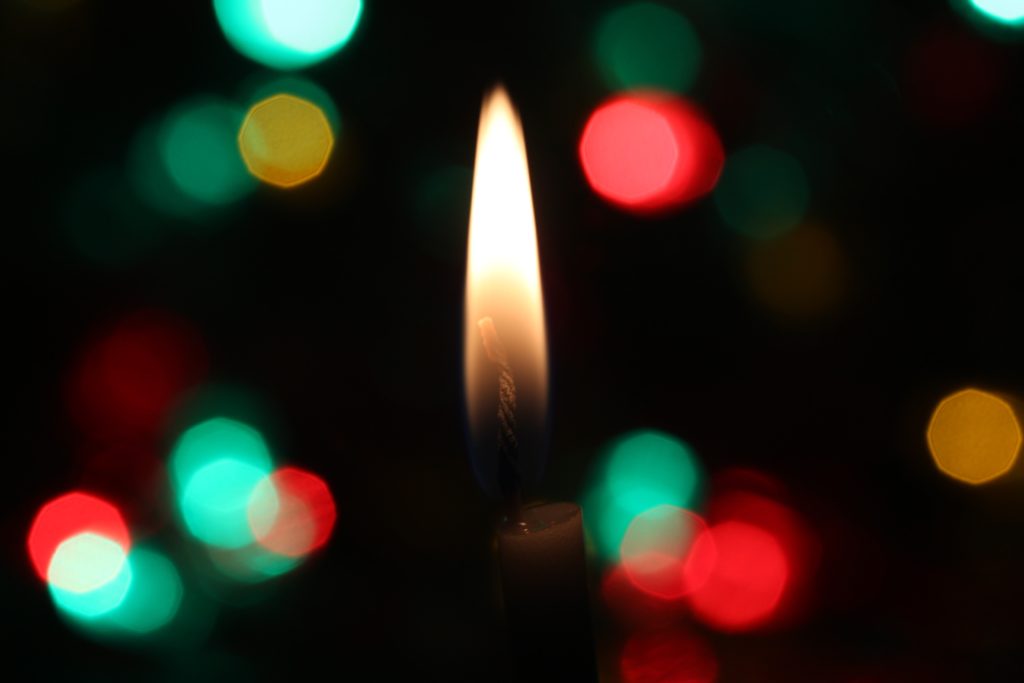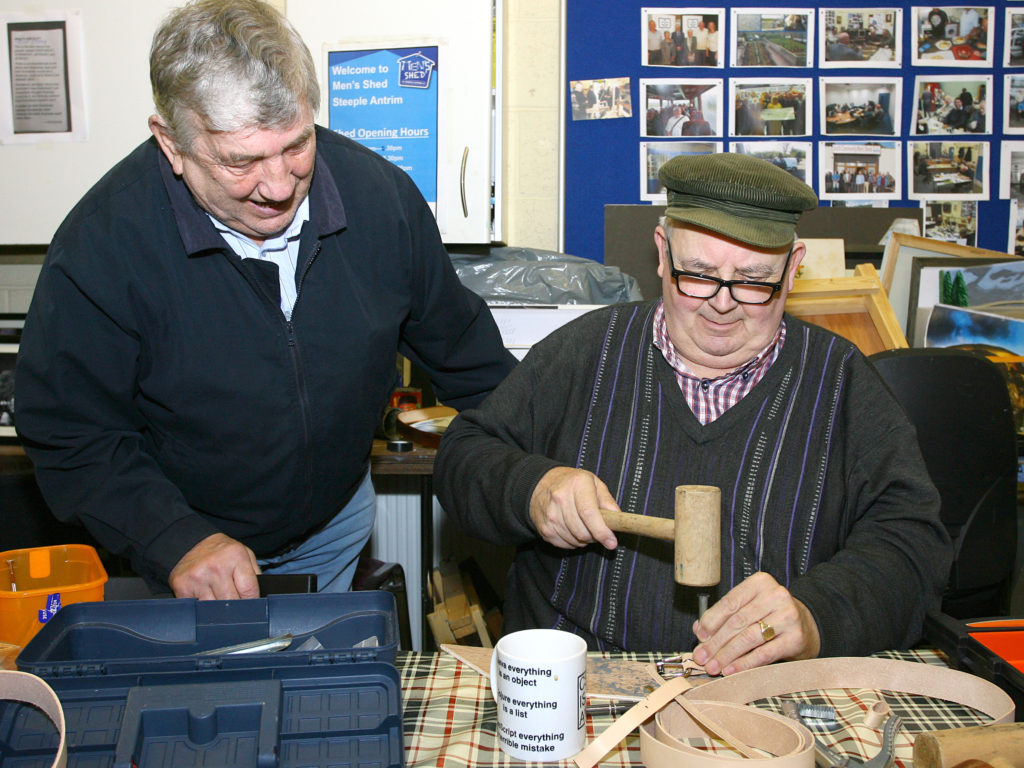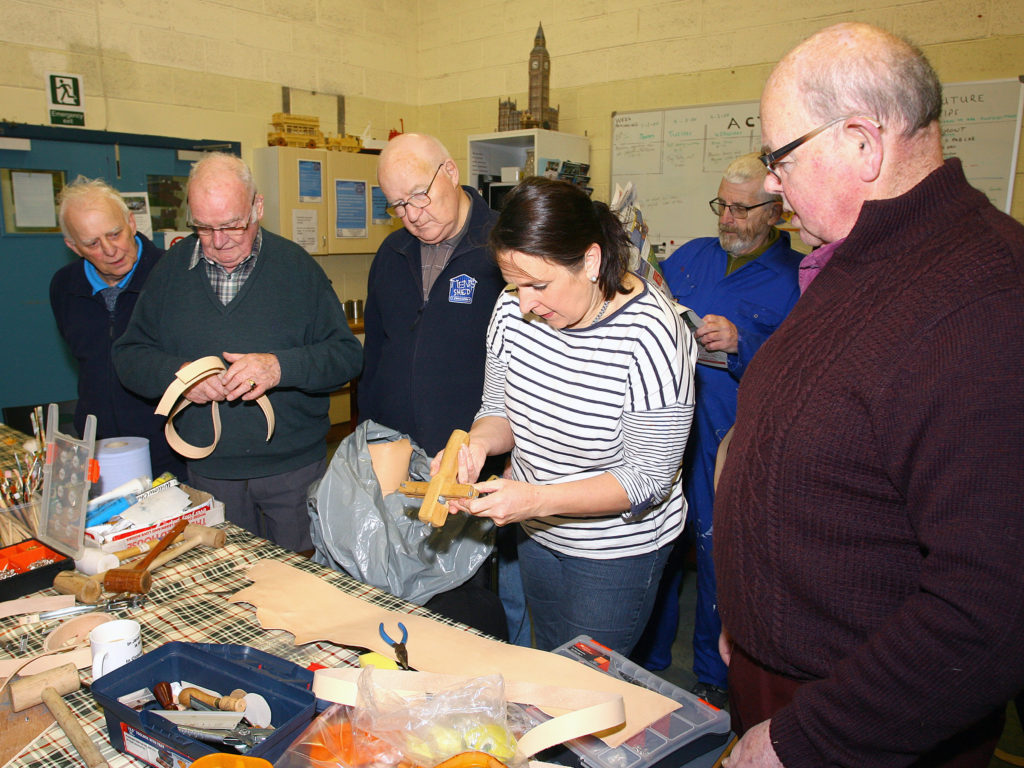Over 250,000 people in Northern Ireland have a mental health problem – that amounts to one in every five people in our community. Half of these problems start before the age of 14.
Action Mental Health (AMH) was founded back in 1963 when the stigma of the day made it very difficult for people with mental ill-health to access the support they needed. Thankfully nowadays, with the increased awareness and reduction in stigma on mental health, AMH’s nine New Horizons services around Northern Ireland, are much-vaunted support networks to people experiencing periods of mental ill-health.
New Horizons operates recovery services that offer well-being, vocational and employability programmes. This complements AMH’s emotional well-being and resilience building programmes in schools, workplaces and indeed across the community which aim to build a more resilient and healthier population. Last year AMH services supported over 33,000 local people.
Through this year’s Christmas campaign, ‘Light Up Christmas’, you can help support Action Mental Health’s services for local people. By getting involved, and hosting your own fundraising event, you’ll help AMH’s recovery and resilience programmes which benefit the entire community.

The effects of loneliness
*Loneliness is a killer, in fact it can hasten your death by up to 30% among some risk groups.
*According to a study of 3.4million people, carried out by Brigham Young University, USA, people who are or feel socially isolated or live alone – whatever their age – are at increased risk of an earlier death. The study’s lead author, Professor Julianne Holt-Lunstad said the harmful effects of loneliness are similar to the harm caused by smoking, obesity or alcohol misuse.
* The study, Social Isolation, Loneliness and Health Among Older Adults by Caitlin Coyle and Elizabeth Dugan found that loneliness was associated with higher odds of having a mental health problem, while isolation was associated with higher odds of reporting one’s health as being fair or poor.
Raymond’s Story
Raymond Kerr was so lonely after his wife died he was ‘climbing the walls’.
The 74-year-old could barely face getting out of bed in the morning as everything he did at home only served to magnify the fact that he was alone.
Even going to get the groceries and buying food-for-one reinforced his feelings of utter isolation and desolation, and soon, depression.
Raymond lost his wife Lola three years ago, but unlike many in his situation, he didn’t have hordes of visiting mourners to keep him afloat before the loneliness set in – he was alone from day one.

The pensioner did find solace in his only child with whom he has forged a better relationship since his wife’s death. However, the demands of his son’s work and own family life meant their regular visits could take place just once a week.
Raymond was also loathe to burden his son with his growing feelings of depression when the younger man was grieving for a mother he had shared a very close bond with all his life.
Aside from that, and the occasional visit by social workers, Raymond lived a solitary life, day in, day out. He admits that this isolation was partly a symptom of his somewhat reserved nature, but also because he lives many miles from his surviving family connections and friends in his native Castlecaulfield, Co Tyrone.
“I was very lonely from day one after my wife died,” he explains. “My wife knew a lot of people but I was more of a loner so when she died I didn’t see many people.
“When I woke up in the morning I felt really bad. I felt very down and I didn’t want to trouble anyone with how I was feeling.
“It put me off my food and I was living on one meal a day. I didn’t feel like cooking just for myself and you can never really buy something in the grocery shop that’s just for one person. So I went with the bare minimum – just potatoes and butter and egg.
“I was feeling depressed, and even when you’re separated or divorced you can always still call the person and have a voice on the other end of the phone but when your wife has died there’s no one there.”
He did eventually begin to talk however, and told his doctor how he was feeling.
“The doctor was great actually because she knew me. She was very easy to talk to and I could tell her anything, so she really helped in that way.”
Raymond was ultimately saved from his depressing world of loneliness by the intervention of social services.
“My doctor sent social workers out to me and one of them told me about the Men’s Sheds,” he says.
The Men’s Sheds, his local one located at Action Mental Health’s New Horizons Antrim, has opened up a new life and one that is filled with company – the company of men who know exactly what life is like for an older widower.

Nowadays, he spends his time participating in arts and crafts, particularly enjoying fine art and painting. Cutting his teeth in the art of leather work he counts himself among ‘the three stooges’, along with two new friends who are in much the same domestic boat as Raymond.
“I’d never heard of the Men’s Shed before and though I was a bit apprehensive about going and wanted to leave a few times, I really enjoyed it and they made me feel very welcome.
“I’d felt unwanted before but the men joked that if I didn’t show up they’d come to my house and get me,” he says. “So I’ve no option and I’ve never stopped going.”
“It’s very interesting and the girl in charge asks what you’d like to do and she’ll even bring in an expert to teach us all how to do new things so I’ve actually made a few belts now,” he adds.
“I’ve made new friendships and the banter and craic is great and makes the day go quickly.”
* The Men’s Sheds bring men aged 50+ together to share skills, socialise and connect with their wider community, while working on practical activities of their choice. The Men’s Sheds, in AMH New Horizons in Antrim, Fermanagh and Downpatrick, are places to have a laugh, make new friends with other men over 50. The Men’s Sheds are just one of the many AMH projects which could benefit if you sign up to the charity’s Light Up Christmas appeal 2019. To request a fundraising pack contact AMH’s Fundraising Team on [email protected], call 028 9182 8494 or register here.
Together, we can tackle loneliness.
If you’re feeling low, contact your GP, as Raymond did, or if you’re in crisis contact Lifeline on 0808 808 8000. Please always remember that help and support is available.